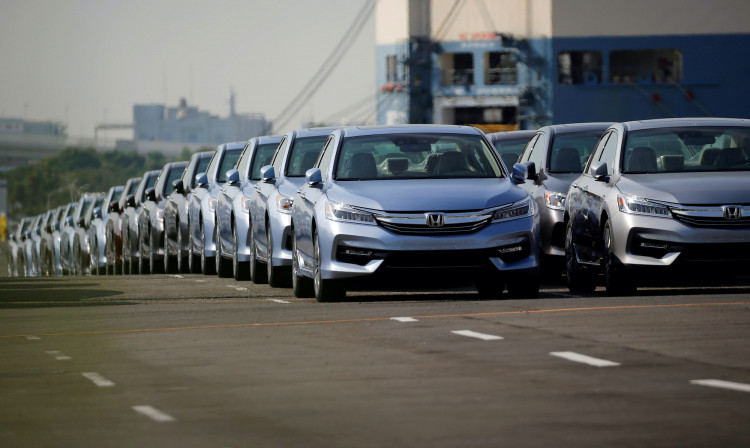Japan posted a trade deficit of ¥637.6 billion ($4.4 billion) in May as exports slumped 1.7% year-over-year, weighed down by a dramatic 24.7% decline in automobile shipments to the United States following new tariffs imposed by President Donald Trump. The drop in exports marked the sharpest monthly contraction since September 2024, and came alongside a 7.7% fall in imports, driven by weakening domestic demand, Japan's Finance Ministry reported Wednesday.
The U.S. tariffs, which include a 25% levy on Japanese autos and a 24% reciprocal tariff on a broader range of goods set to take effect July 9, have clouded trade negotiations between Tokyo and Washington. Despite meeting during the recent G7 summit in Canada, Japanese Prime Minister Shigeru Ishiba and Trump were unable to resolve their trade differences.
Japan's auto exports-long a cornerstone of its economy-were especially impacted. Overall vehicle exports dropped 6.9%, with U.S.-bound shipments accounting for a significant portion of the decline. Japanese carmakers, such as Toyota and Honda, comprise 28.3% of all exports to the U.S., according to customs data.
Louis Chua, equity research analyst at Julius Baer, noted that "Japan would likely prioritize concessions for its key automobile sector during trade talks," calling the industry a "major national interest."
Trump on Wednesday remarked that Japan was being "tough" in negotiations, after six rounds of talks involving top officials from both sides failed to yield a breakthrough. U.S. Commerce Secretary Howard Lutnick and Treasury Secretary Scott Bessent are leading the American negotiating team.
Exports to China also declined by 8.8%, while overall shipments to the U.S. were down 11.1%. The broader economic impact of the tariffs is already apparent, with Japan's GDP shrinking by 0.2% in the January-March quarter-the first contraction in a year.
The Bank of Japan warned in its latest policy statement that growth is likely to "moderate" as trade-related uncertainties weigh on corporate profits and global economic momentum. "It is extremely uncertain how trade and other policies in each jurisdiction will evolve and how overseas economic activity and prices will react to them," the central bank stated.
Stefan Angrick, Head of Japan and Frontier Markets Economics at Moody's Analytics, identified tariffs as the "main threat" to Japan's economic outlook. "The deteriorating trade outlook doesn't bode well for exports in the months ahead. Even if Japan and the U.S. reach a deal that softens some of the more punitive U.S. tariffs, a full return to pre-Trump trade terms is unlikely," he said.






